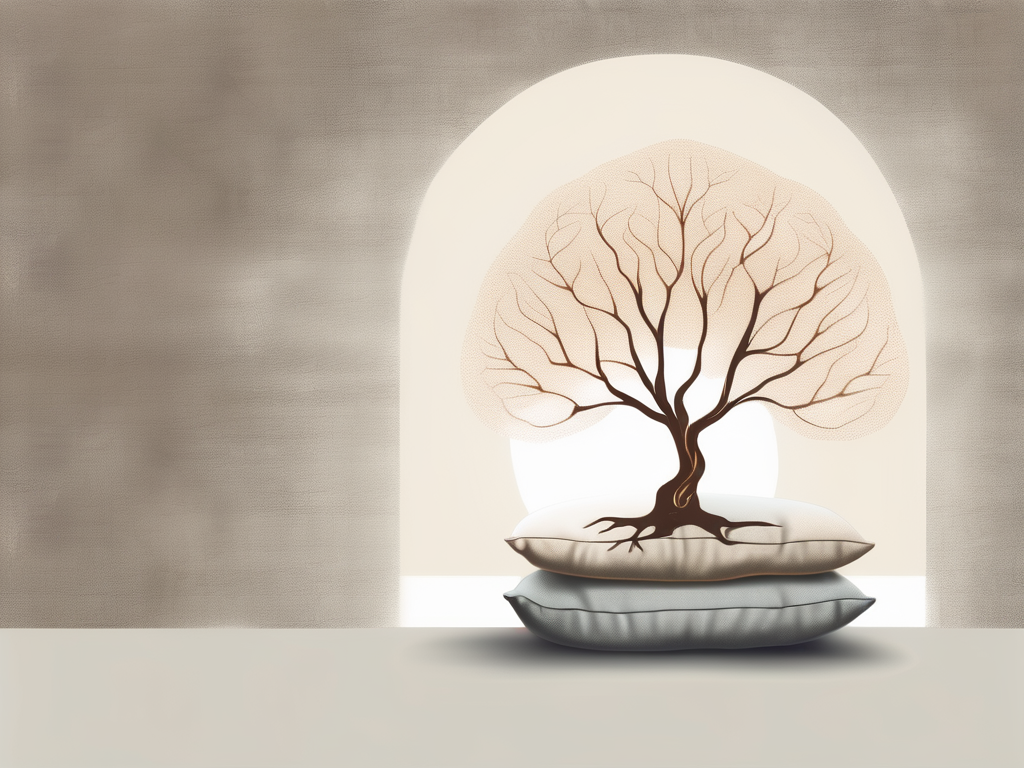Buddha Day, also known as Vesak or Wesak, is one of the most significant events in the Buddhist calendar. It is a celebration that brings together millions of Buddhists around the world to honor and remember the life, teachings, and enlightenment of Siddhartha Gautama, who became known as the Buddha. In this comprehensive guide, we will delve deep into the various facets of Buddha Day, exploring its significance, history, spiritual aspects, global celebrations, impact on Buddhism, and how you can observe it in your own life.
Understanding Buddha Day
At its core, Buddha Day is a time for Buddhists to reflect on the profound wisdom and compassion that the Buddha embodied and shared with the world. It is a day of reverence, gratitude, and spiritual renewal. The celebration typically falls on the full moon of the month of Vesak, which usually corresponds to April or May in the Gregorian calendar.
The Significance of Buddha Day
Buddha Day holds immense significance for Buddhists worldwide. It marks the birth, enlightenment, and death (parinirvana) of the Buddha, making it a commemoration of his entire life journey. Buddhists believe that the Buddha’s teachings provide a path to liberation from suffering, and Buddha Day offers an opportunity to reflect on and recommit to following his teachings.
The History and Origin of Buddha Day
The origins of Buddha Day can be traced back to ancient India, where the Buddha was born approximately 2,500 years ago. Siddhartha Gautama, the prince who renounced his royal upbringing and embarked on a spiritual quest, attained enlightenment under the Bodhi tree in Bodh Gaya. The events of Buddha’s life became the foundation for the annual celebration of Vesak.
During his quest for enlightenment, Siddhartha Gautama spent many years practicing asceticism and meditation. He sought to understand the nature of suffering and the path to liberation. After years of rigorous practice, he finally achieved enlightenment while meditating under the Bodhi tree. This momentous event is celebrated as the Buddha’s enlightenment and is a central theme of Buddha Day.
Following his enlightenment, the Buddha dedicated the rest of his life to teaching others about the path to liberation. He traveled extensively, spreading his teachings and gathering disciples. The Buddha’s teachings, known as the Dharma, emphasize the importance of compassion, mindfulness, and the cultivation of wisdom. These teachings continue to guide Buddhists around the world and are celebrated on Buddha Day.
As Buddhism spread to different regions, the celebration of Buddha Day took on various cultural and regional traditions. In some countries, such as Sri Lanka and Thailand, the day is marked by elaborate processions, with devotees carrying statues of the Buddha and offering flowers and incense. In other countries, meditation retreats and teachings are organized to deepen practitioners’ understanding of the Dharma.
Buddha Day is not only a time for reflection and celebration but also a time for acts of generosity and compassion. Many Buddhists engage in charitable activities, such as donating food and clothing to the less fortunate, as a way to honor the Buddha’s teachings on compassion and kindness.
Overall, Buddha Day serves as a reminder of the Buddha’s profound impact on the world and his teachings’ enduring relevance. It is a day for Buddhists to come together, express gratitude, and renew their commitment to following the path of wisdom and compassion. Through reflection, celebration, and acts of kindness, Buddhists honor the Buddha’s legacy and strive to embody his teachings in their daily lives.
The Spiritual Aspects of Buddha Day
Buddha Day encompasses various spiritual practices and teachings that are central to Buddhism. It is a time for Buddhists to deepen their understanding of the Dharma—the teachings of the Buddha—and to cultivate mindfulness, compassion, and wisdom in their own lives.
On this sacred day, Buddhists from all around the world come together to celebrate the profound wisdom and compassion of the Buddha. It is a time of reflection and introspection, as practitioners seek to embody the teachings of the Buddha in their daily lives.
One of the key aspects of Buddha Day is the celebration of the teachings left behind by the Buddha. These teachings, encapsulated in the Tripitaka and various sutras, are seen as a guide to realizing the true nature of reality and attaining liberation from suffering. Buddhists may spend the day studying, contemplating, and discussing these teachings as a means of deepening their spiritual practice.
During this special day, Buddhist temples and monasteries are adorned with vibrant decorations and beautiful flowers. The air is filled with the soothing sound of chanting and the fragrance of incense. Devotees gather to offer their respects and make offerings to the Buddha, symbolizing their gratitude for his teachings and the path to enlightenment.
The Teachings of Buddha Celebrated on This Day
One of the most celebrated teachings on Buddha Day is the Four Noble Truths. These truths, which form the foundation of Buddhism, explain the nature of suffering and provide a roadmap to liberation. Buddhists reflect on these truths and strive to apply them in their own lives, seeking to alleviate suffering and cultivate inner peace.
Another important teaching celebrated on Buddha Day is the Eightfold Path. This path outlines the steps one must take to achieve enlightenment and liberation. Buddhists contemplate each aspect of the path, such as right understanding, right intention, right speech, right action, right livelihood, right effort, right mindfulness, and right concentration, in order to cultivate a virtuous and compassionate way of life.
Furthermore, Buddha Day is a time to reflect on the concept of impermanence, or the ever-changing nature of existence. Buddhists contemplate the transient nature of all things and strive to develop a deep understanding of impermanence, which can lead to a greater appreciation for the present moment and a sense of interconnectedness with all beings.
Meditation and Mindfulness Practices
Meditation holds a central place in Buddhist practice, and Buddha Day provides an ideal opportunity for individuals to dedicate time to meditation. Practicing meditation on this day can bring about a heightened sense of tranquility, clarity, and insight. By sitting in stillness and observing the breath, practitioners can cultivate a deep sense of inner peace and develop a greater understanding of the nature of their own minds.
Mindfulness practices are also encouraged on Buddha Day, allowing practitioners to bring a heightened state of present-moment awareness to their thoughts, emotions, and actions. By cultivating mindfulness, Buddhists aim to break free from the cycle of habitual reactivity and develop a more compassionate and wise response to the challenges of life.
During Buddha Day, meditation and mindfulness retreats are often organized, providing a supportive environment for practitioners to deepen their practice. These retreats offer guided meditation sessions, Dharma talks, and opportunities for personal reflection and discussion. By immersing themselves in a dedicated spiritual environment, practitioners can experience a profound sense of connection and renewal.
In conclusion, Buddha Day is a time of deep spiritual significance for Buddhists around the world. It is a day to honor the teachings of the Buddha, cultivate mindfulness and compassion, and deepen one’s spiritual practice. Through meditation, contemplation, and the celebration of the Buddha’s wisdom, practitioners seek to awaken to their true nature and bring about positive transformation in themselves and the world.
Buddha Day Celebrations Around the World
Buddha Day is celebrated with great enthusiasm and joy in Buddhist communities worldwide. The celebrations vary in their forms and rituals, reflecting the diversity of Buddhist traditions and cultures.
In countries like Thailand, Sri Lanka, and Myanmar, devotees gather in Buddhist temples or monasteries to participate in religious ceremonies. These ceremonies are steeped in tradition and are considered a way to pay homage to the Buddha and his teachings. The atmosphere is filled with a sense of reverence and devotion as devotees offer alms to monks and nuns, chant sutras, meditate together, and engage in acts of generosity. The act of offering alms is seen as a way to cultivate generosity and compassion, while chanting sutras and meditating together helps to deepen one’s spiritual practice.
During Buddha Day celebrations, devotees often make offerings of flowers, candles, and incense as symbolic gestures of reverence and aspiration. The vibrant colors of the flowers and the flickering flames of the candles create a visually stunning display, adding to the overall sense of serenity and tranquility.
Traditional Rituals and Practices
In many countries, devotees gather in Buddhist temples or monasteries to participate in religious ceremonies. These may include offering alms to monks and nuns, chanting sutras, meditating together, and engaging in acts of generosity. Devotees often make offerings of flowers, candles, and incense as symbolic gestures of reverence and aspiration.
In Japan, Buddha Day, also known as Vesak, is celebrated with the tradition of hanamatsuri, or “flower festival.” On this day, a small statue of the baby Buddha is placed on a beautifully decorated altar, surrounded by flowers. Devotees pour sweet tea over the statue to symbolize the cleansing of the Buddha’s birth.
In Tibet, Buddha Day is celebrated with the “Saga Dawa” festival, which lasts for an entire month. During this time, devotees engage in various religious activities such as circumambulating sacred sites, reciting prayers, and performing acts of kindness and charity. The festival culminates with the display of a giant thangka, a religious painting, which is unfurled and displayed for all to see.
Modern Interpretations and Celebrations
As Buddhism has spread across the globe, Buddha Day celebrations have evolved and adapted to local cultural contexts. In some regions, processions are held, featuring colorful floats and traditional attire. These processions are a way to showcase the rich cultural heritage of Buddhism and to bring the community together in celebration.
In countries like Malaysia and Singapore, Buddha Day celebrations often include public talks by renowned Buddhist scholars and teachers. These talks provide an opportunity for people to learn more about the teachings of the Buddha and how they can be applied in their daily lives. Additionally, exhibitions showcasing Buddhist artifacts and artworks are organized to educate and engage those interested in Buddhism.
In Western countries, Buddha Day celebrations often take on a more secular and inclusive tone. Meditation workshops, yoga sessions, and mindfulness retreats are organized to introduce people to Buddhist practices and philosophy. These events aim to promote inner peace, well-being, and a deeper understanding of oneself.
Regardless of the cultural and regional variations, Buddha Day celebrations serve as a reminder of the profound impact the Buddha’s teachings have had on individuals and communities around the world. They provide an opportunity for people to come together, reflect on the teachings of compassion and wisdom, and strive towards inner transformation.
The Impact of Buddha Day on Buddhism
Buddha Day plays a crucial role in shaping and strengthening the global Buddhist community. It serves as a unifying force, bringing Buddhists of different traditions together to celebrate their shared heritage and values.
Buddha Day’s Role in Spreading Buddhism
By raising awareness about Buddhism and its teachings, Buddha Day acts as a catalyst for the dissemination of the Dharma. The celebrations provide an opportunity for Buddhists to engage in conversations with people of other faiths or those who are curious about Buddhism, fostering mutual understanding and dialogue.
The Influence of Buddha Day on Buddhist Communities
Buddha Day serves as a reminder for Buddhist communities to recommit to their spiritual practice and to engage in acts of kindness, compassion, and generosity. It is a time to reflect on how Buddhist teachings can be applied to daily life to benefit oneself and others.
Observing Buddha Day in Your Own Life
You don’t have to be a Buddhist to find inspiration in the teachings and practices associated with Buddha Day. Embracing the spirit of this celebration can foster personal growth, well-being, and a deeper understanding of oneself and the world.
Ways to Honor Buddha Day at Home
You can observe Buddha Day in the comfort of your own home by setting aside time for reflection, meditation, and self-discovery. Create a peaceful space, light candles or incense, and engage in quiet contemplation. You could also read Buddhist texts, listen to Dharma talks, or engage in acts of generosity, such as donating to a charity.
Incorporating Buddha’s Teachings into Daily Life
Buddha Day serves as a reminder that the teachings of the Buddha are relevant and applicable to all aspects of life. Take this day as an opportunity to reflect on how you can incorporate mindfulness, compassion, and wisdom into your daily routines, relationships, and interactions with others.
By embracing the essence of Buddha Day, regardless of your religious background, you can tap into the profound wisdom that the Buddha’s teachings offer and be inspired to live a more meaningful, compassionate, and fulfilling life.












